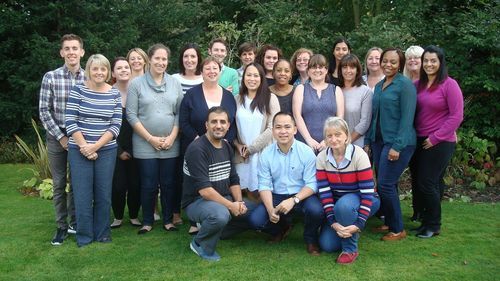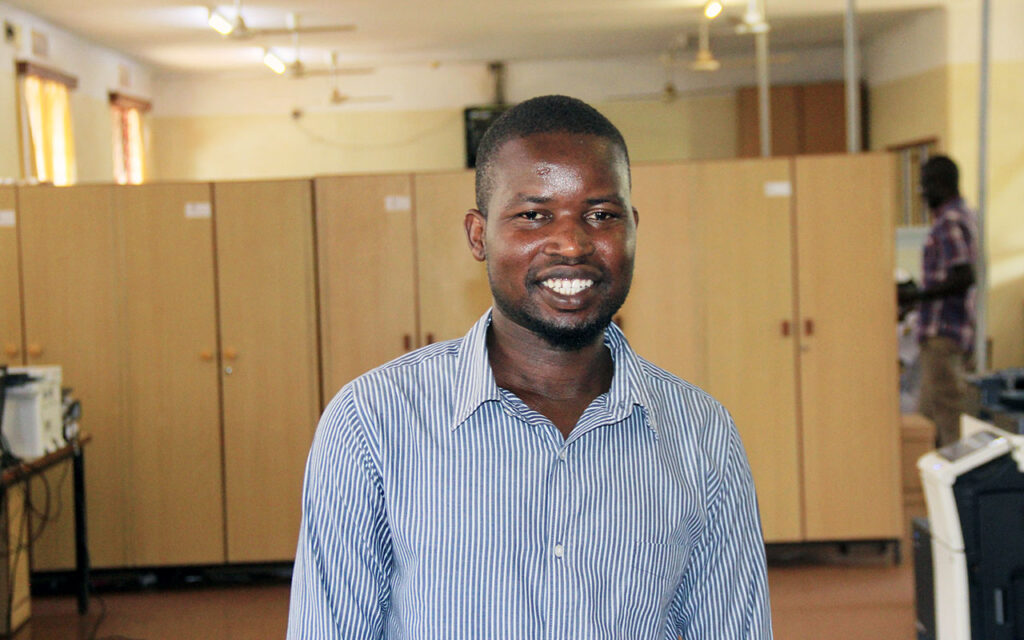Changing practice? Yes we can
It took nearly two years, five whole day meetings, numerous emails and a little blood/sweat but no tears to plan our first residential training course for haemophilia professionals.
“Contemporary Care for People with Bleeding Disorders” was developed and delivered by Kate Khair (Great Ormond Street Hospital), Debra Pollard (Royal Free London), Cathy Harrison (Sheffield) and Susan Hook (Edinburgh).
The first course ran this week in Sheffield and attracted a lively group of 19 nurses and physios from the UK and Ireland and as far away as Abu Dhabi. This was very far from the standard teaching approach used in haemophilia care and we worked them hard. But they rose magnificently to every challenge thrown at them, from defending their posters through to debating the future of haemophilia care!

Each day started with a breakfast journal club, followed by state of the art talks and workshops delivered by the course leaders and “guest speakers”. These included Professor Deborah Christie from UCL, who had our students eating out of her hand as she discussed how to provide psychosocial support and engage young people in self-care.
The work continued late into the evening, with a series of pre-dinner talks on the history of haemophilia care, the use and misuse of medical statistics (all our participants had more than the average number of legs) and new directions in haemophilia care (in which Professor Mike Makris told us why in the future “haemophilia care will be delivered by nurses not doctors.”)
“I was overwhelmed by the enthusiasm of all the participants who joined in with what was a tiring and at times challenging programme to make the course work so well, says Debra Pollard. “The networking and group discussions (particularly when confronted with some controversial subject matter) to determine the best evidence-based practice, was invaluable and everyone gave each other support and confidence as the week went on to ask questions, share experiences and voice opinions.”
“It worked well having a group with varied experience,” says Cathy Harrison. “And the wide geographical status of the delegates allowed discussion about different cultures and work practices. It was great seeing the energy during the debate.”
Debra adds that the standard of the poster presentations by the participants at the start of the course was outstanding. “We hope to see them displayed at both HNA or expanded into publications soon.”
We had some amazing feedback:
- “This course boosted my confidence. I will take home good practices and apply it in my centre.”
- “All the sessions were very beneficial to my practice.”
- “Since the course covered all areas of haemophilia care, it gives me insight into a holistic approach to delivering care.”
- “No stone left unturned. I’m not going away thinking ‘I wish they’d done that’. Thank you and well done.”
- “I am so excited to go back and share what I have learned. I highly recommend this course to my regional haemophilia nurses and will be great if you can conduct it outside the UK.”
- “Has greatly improved my understanding of holistic haemophilia care.”
Joanne Swidenbank from Cardiff tweeted “After an inspiring talk from @katekhair at @haemnet conference, I’m inspired to do my own research piece!”
Alex Rowell posted a message on Haemnet: “I just wanted to say thank you to Cathy, Kate, Deborah, Mike and Laurence and all the speakers that made the course this week so enjoyable. There was so much time and effort put in to it and it was much appreciated. I have lots of good ideas for practice and the networking side was very useful. Thank you!” Over on Facebook, Michelle Kightley writes: “Enjoyed it SO much. Feeling inspired. Thank you guys x.”
The course leaders are feeling a little bit tired today, but “we loved the course and are raring to plan the next one … so keep your eyes peeled, we will be advertising course 2 soon,” says Kate Khair.


